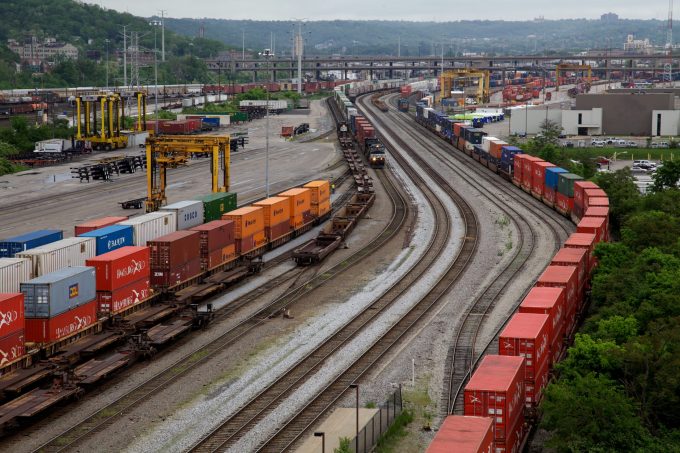US port operators brace for tariff blitz if Trump gets second term
US port operators will be focused on the results of tomorrow’s elections, concerned that potential ...

US west coast ports are losing business to other gateways because of opposition from workers to productivity improvements, according to some observers.
However, labour unions believe intermodal connectivity, rather than port productivity, should be the focus for change.
Lately the Wall Street Journal has been the stage for a debate on west coast port productivity, with an opening salvo from Peter Tirschwell, VP maritime and trade at IHS Markit and editor-in-chief of the Journal of Commerce.
He argues that US ports have been ...
Amazon pushes into LTL for small package fulfilment and UPS does a u-turn
New senior management for DSV as it readies for DB Schenker takeover
Volumes set to 'fall off a cliff' as US firms hit the brakes on sourcing and bookings
Asian exporters scramble for ships and boxes to beat 90-day tariff pause
Temporary tariff relief brings on early transpacific peak season
'Tariff madness' will prompt renegotiation of ocean shipping contracts
Forwarders 'allowing the fox into the chicken run' by supporting 'hungry' carriers
Response to tariffs by Chinese importers may see extra costs for US shippers

Comment on this article
Gary Ferrulli
June 18, 2021 at 3:09 pmReality, lots of blame for the congestion in the US, several bottlenecks at inland points, including cargo interest warehouses as well a rail intermodal ramps. But first bottleneck on imports is at the ports and terminals on the US West Coast where productivity lags well behind the top 15 major ports in the world while compensation is the highest in the world. It goes downhill from there.